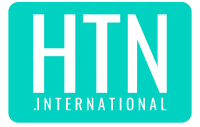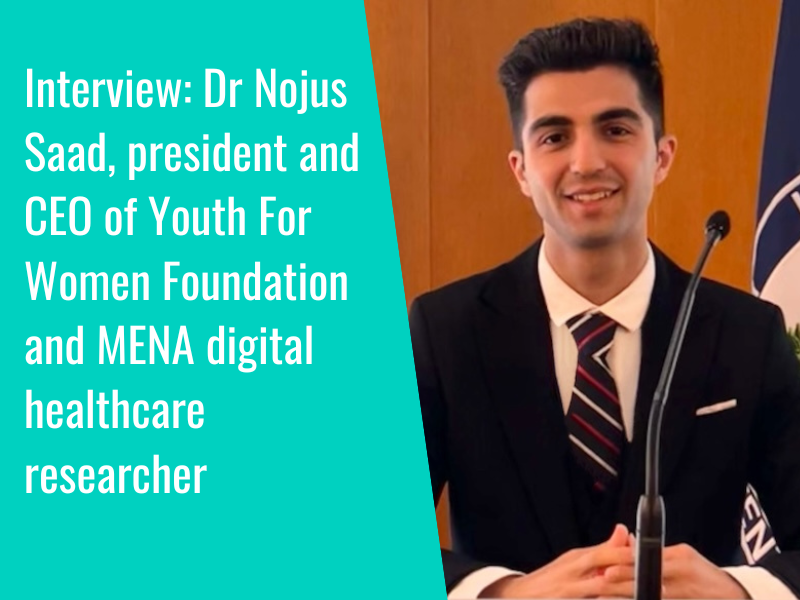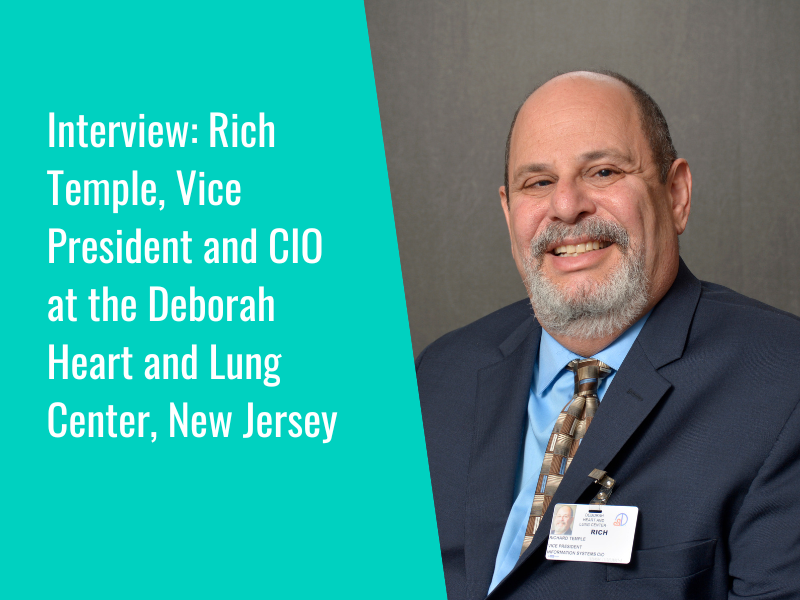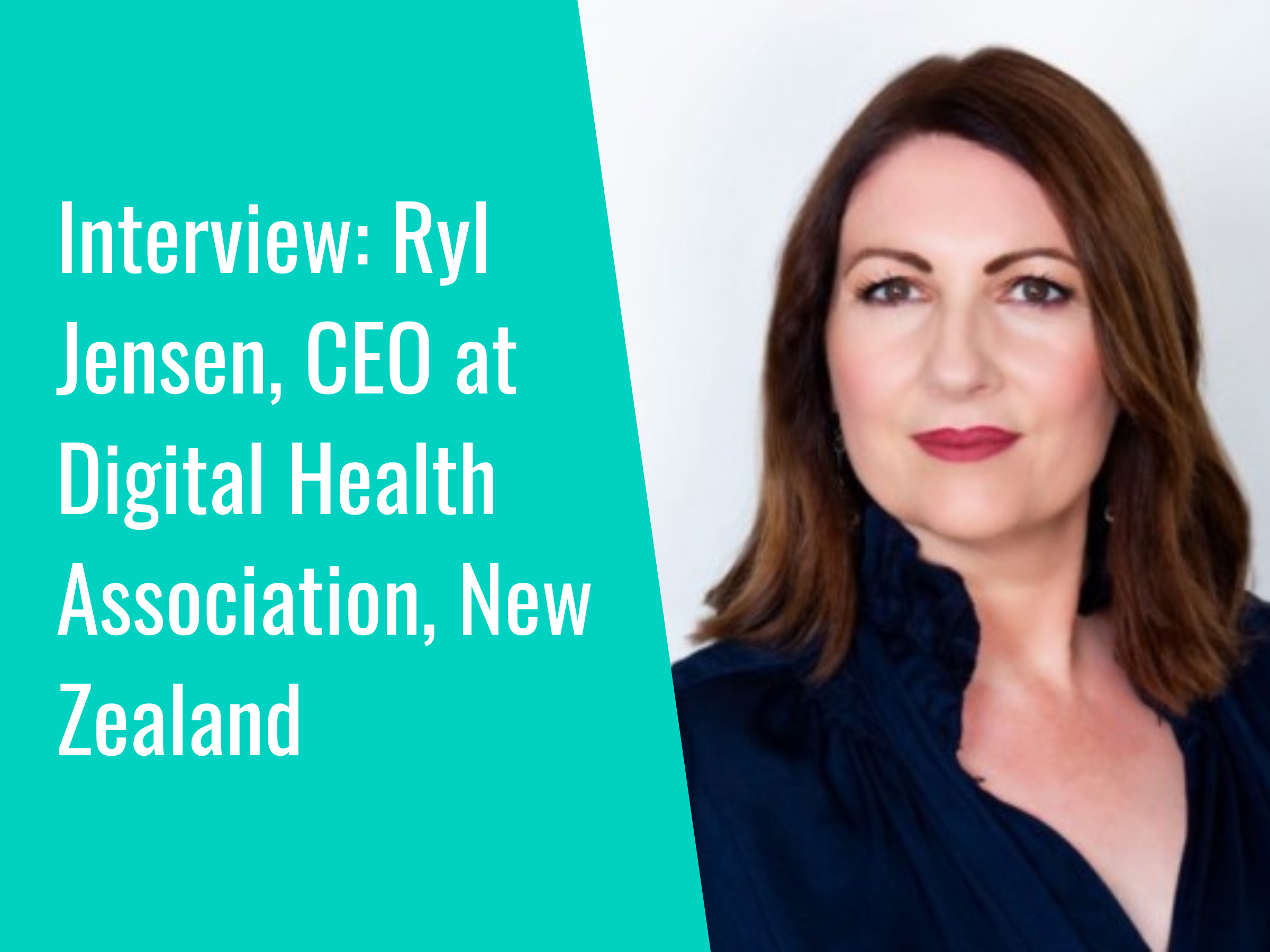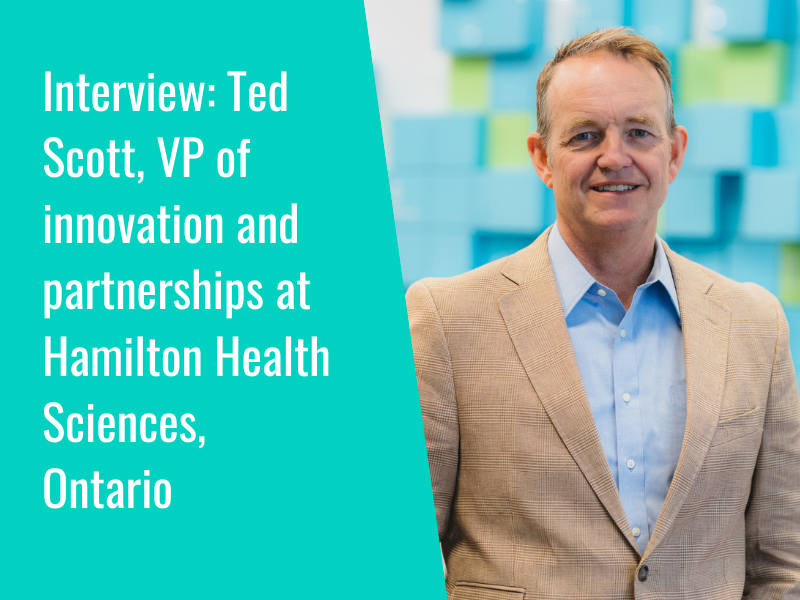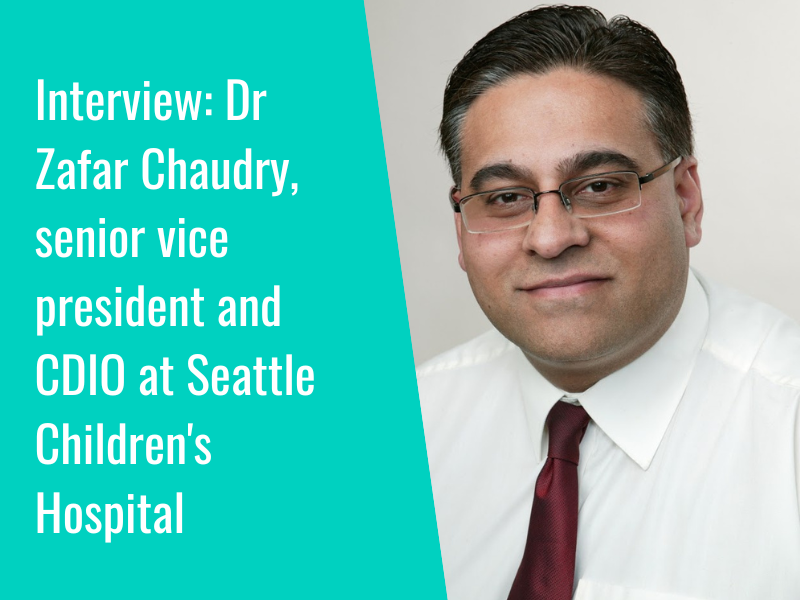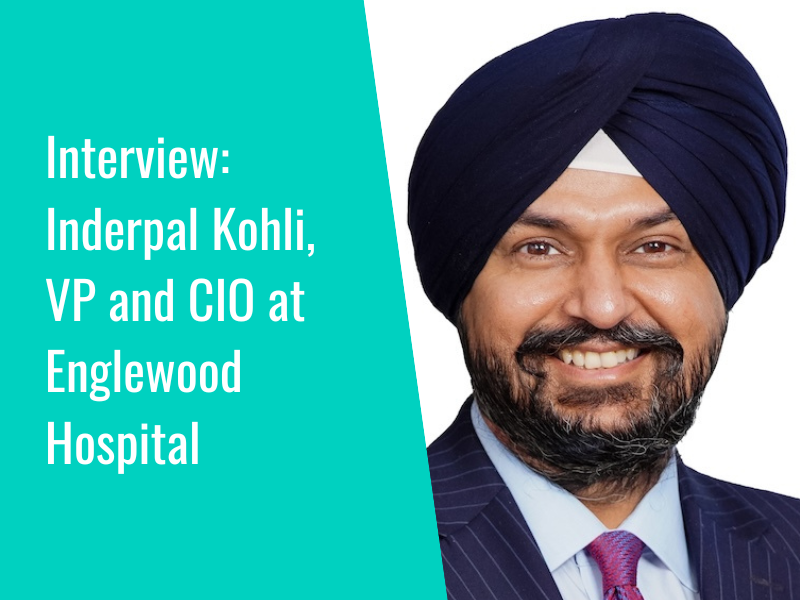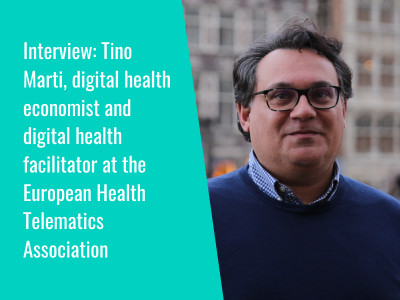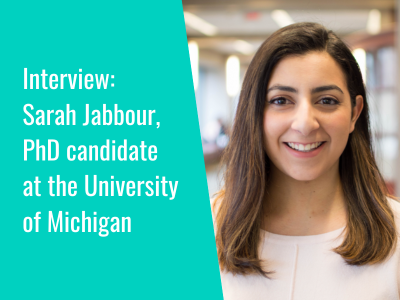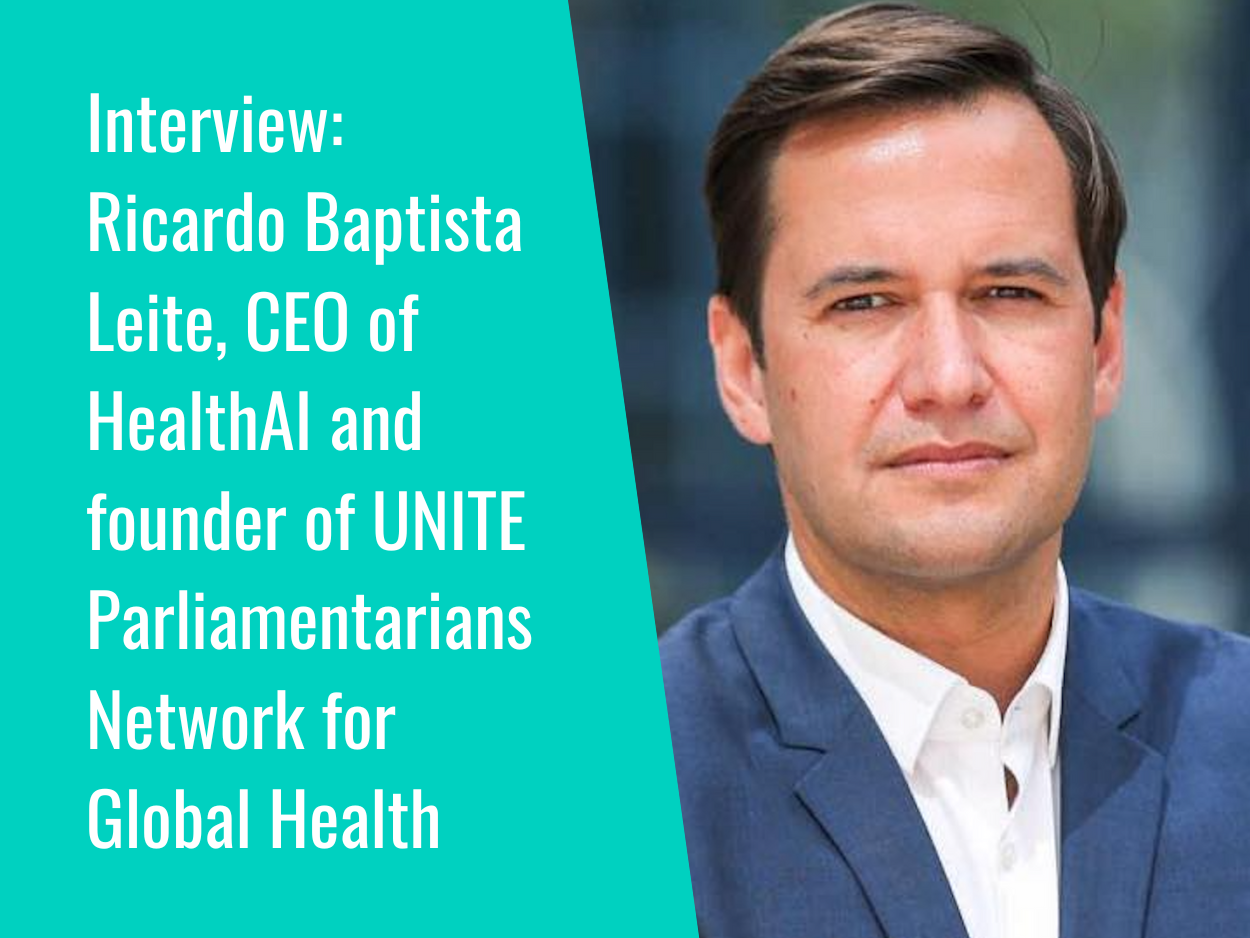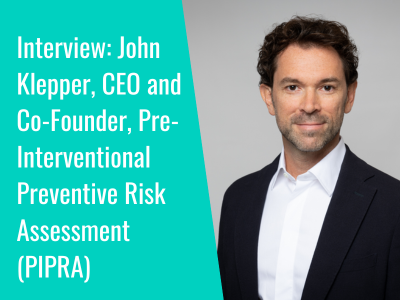Last week, HTN attended Web Summit in Lisbon, described by Politico as “the world’s premier tech conference”.
Bringing together over 70,000 attendees from 153 countries, Web Summit is a celebration of everything that technology has to offer across different industries, with healthcare as a key player.
We attended talks to get insights on the health tech space from different corners of the globe, visited showcases to get a taste of what tech start-ups have to offer healthcare, and chatted to health tech entrepreneurs from a range of countries to find out more about what they will be bringing to the market and to their country’s digital health landscape – more on that to come.
And of course, we documented our visit so that we could bring you along for the ride. Read on for a taster of what Web Summit had to offer in the health tech space.
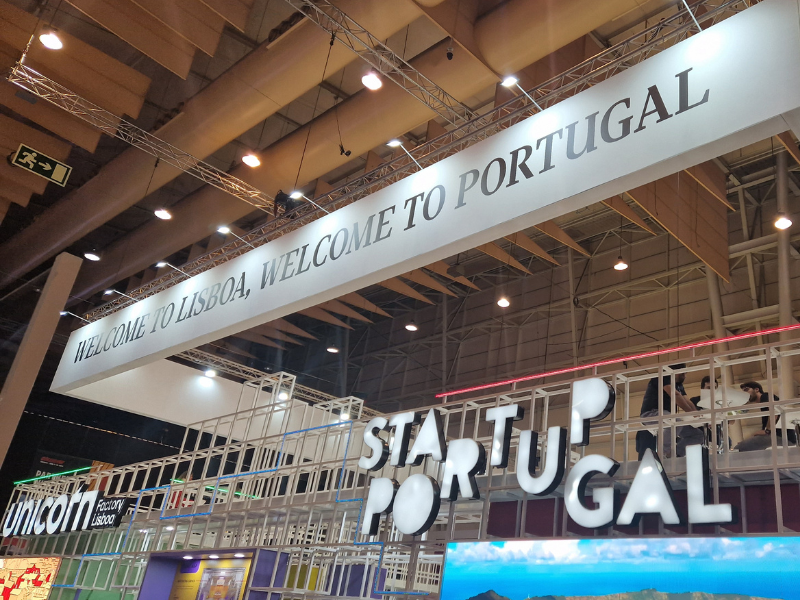
Artificial intelligence: seeking equality and buying time
AI was, understandably, a hot topic across Web Summit. It came up in many different discussions, with conversation focusing on everything to its most notable challenges to the potential that can be unlocked through AI.
One such talk that we attended centred around how to build a responsible AI ecosystem. It featured Ricardo Baptista Leite, Portugese medical doctor, university professor and politician as well as CEO of Health Ai, a Geneva-based organisation focusing on the use of responsible AI in the health sector, and Oisin Hanrahan from New York, co-founder and CEO of technology company Keychain.
Ricardo highlighted that ‘fear’ tends to come up in conversation a lot when engaging with people about AI. He noted that this this is not unique to AI or technology, and has happened with other areas in health such as medicines and pathways with regards to whether they are safe to use.
It’s important to be aware of the other end of the spectrum, Ricardo added; how do you ensure that regulation is not killing innovation? He suggested a metaphor: if you hold a butterfly between your hands, you don’t want to open your hands too much so that it flies away, but you also don’t want to squeeze too tightly and hurt it. It’s about finding that balance, he said. He also suggested a key lesson here for the approach to innovation, emphasising that governments should ensure that they are making decisions on pragmatism and data rather than on fear.
Oisin commented that in his view, there are three key issues around AI that need to be tackled. The first is whether AI will be given the power to manage physical assets (such as defence or transport, or in this case, health infrastructure), with Oisin adding that this ties into the fear around giving it decision-making rights. Then there is the concern around the impact of AI on jobs, and the issue of not spending enough time on the wider implications that AI can have, once it has been applied to its ‘main’ task.
Ricardo recommended a book called Power and Progress (by Daron Acemoglu and Simon Johnson) which examines the introduction of new technologies by humanity over the last 1,000 years. He described how the book highlights that new technology has consistently been introduced with the view that it will make life better, but it often only makes life better “for the few”. The limited examples of technology being deployed successfully for all, he said, come when inclusivity and accountability are included from conception and through development. “We need to learn from the lessons in the past to do better in the future,” Ricardo emphasised.
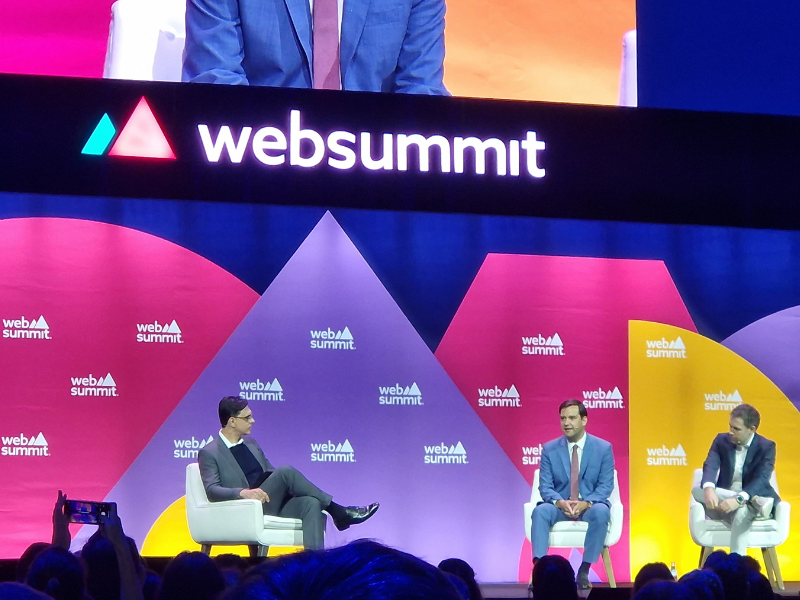
HTN also attended a talk by Outreach co-founder and CEO, Manny Medina, which focused on how AI can “provide a pathway to economic empowerment and equality”.
Manny emphasised that utilisation of artificial intelligence should be about enabling humans to “be their best self”, whilst AI provides bespoke support in required areas. It is about optimising your time and your team’s time, he said; AI should be a customised assistant there to help free up humans to focus on the highest value activities.
“We’re building AI to buy us time that need in moments of uncertainty turbulence,” Manny said. “It’s about helping us to be present.”
The future of medtech
A wide range of health tech start-ups from across the globe participated in a showcase at Web Summit to share more about their solution, purpose and the needs they are meeting. Let’s take a look at where some of the start-ups from different countries are focusing their efforts.
AI was a key theme among many of the start-ups; from Italy, we learned about Dermaself, an online dermatology service providing personalised skincare support through artificial intelligence, along with COCO Technologies AI and E-Health from Colombia, a healthcare access solutions hub with a mission to “transform traditional clinics into digital clinics” through AI-enabled services. We heard about Gaston from India, a start-up focused on delivering personalised, AI-generated food recommendations designed to support health and wellbeing, based on biological and genomic profiles. From Germany, there was Alon Health an an AI solution intending to help health insurance providers to evaluate and anticipate risks through utilisation of wearable data. The team behind The Cognity from the USA shared information on their online application utilising AI and neuroscience to help people on the autism spectrum to develop their communication skills. Also from the USA, we learned about ezClinic, a digital nurse application powered by AI which provides a “personal assistant” for critical and acute care nurses to assist with monitoring of patients and prevention of harm. We chatted to ezClinic’s founder James Martin later in the day to find out more about the health tech’s story and his thoughts on the landscape of digital health in the USA – we’ll be sharing our interview soon.
Mental health was another theme among the start-ups sharing their solutions. From Ireland, we heard about Fettle, an online therapy platform matching users to a range of suitable therapists; Fettle’s founder described the solution as “committed to promoting therapy for all by making it accessible through tech”. Another app we learned about was Goddess (USA), a solution designed to support women’s mental and physical health by offering a library of wellbeing guidance and resources. The UK was also represented with Moti, an app aiming to make “wellbeing a part of your daily life” through collation of positive inspiration, daily reminders and community support.
There was MyMama from Malta, an online platform designed to provide growing families with services and support through pregnancy and parenthood, and Atomica Health Tech from Brazil with a mission to “connect people with an ecosystem of health and wellbeing”, highlighting the particular challenges for accessing health services in Brazil for the large percentage of the population without insurance.
Another start-up participating in the medtech showcase included Liftaware from The Netherlands, placing the spotlight on workforce wellbeing support; the platform aims to reduce burnout and absenteeism by using organisation data to determine what employees need. There was 2MO – Second Medical Opinion, a platform from a Dubai start-up looking to “empower health decisions” which focuses on improving transparency and trust to provide clarity for people seeking more information on their diagnosis. We also heard from Fusion Clinic from Brazil, seeking to provide a platform “like AirBnB but for health”, through which healthcare spaces are connected with those who need them.
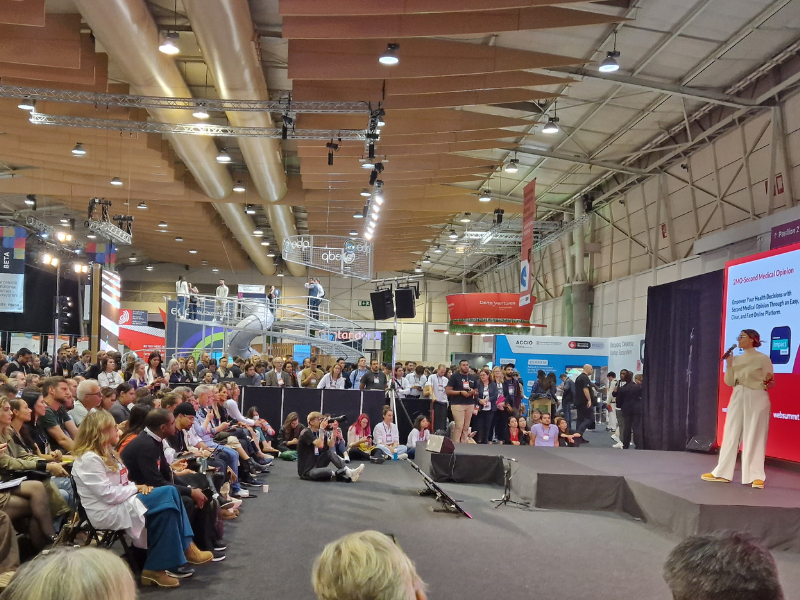
New world, old tech
Stepping into an area of health tech less explored, another talk we attended was led by Agnieszka Sekula, co-founder of Australian company Enosis Therapeutics. Enosis Therapeutics describes itself as leading the development of spatial therapeutics – “interactive, multi-sensory digital spaces where individuals can build and engage with detailed models of their mind” – in order to support mental health care.
Agnieszka explained how psychedelic use is a key inspiration for these digital spaces – or rather, the experiences they trigger.
It comes down to what a psychedelic experience actually is, with Agnieszka acknowledging that there are different definitions, such as full immersion in the present moment, or a state of inner healing generating insightful knowledge. Ultimately, she emphasised, it is a “unique experience that doesn’t fit into existing frames”, but has been applied in various areas across mental healthcare over recent years, such as mind expansion, social connection and helping people to cope. In this way, Agnieszka said, virtual reality is “emerging as a potential mechanism for implementing an alternate state of consciousness”.
Enosis Therapeutics, therefore, are working on building a system that fits around the experience. The psychedelic experience is difficult to put into words; therefore, she believes that patients should be equipped with tools that do not rely on talking therapy. They are creating a spacial therapeutics model which Agnieszka describes as “a place that the patient builds themselves”, where they can record what they are going through and project their experiences, “chaotically represented by the user to represent how they actually think, in order to capture the psychedelic experience”. In doing so, Enosis Therapeutics believes that such therapeutic tools in a spatial computing future can “allow individuals to direct their own healing journey”.
That’s a wrap from HTN on Web Summit for now – but keep an eye out in the coming weeks, as we’ll be sharing interviews with a range of health tech entrepreneurs from Switzerland to Poland to the US.

- 1
- 2
